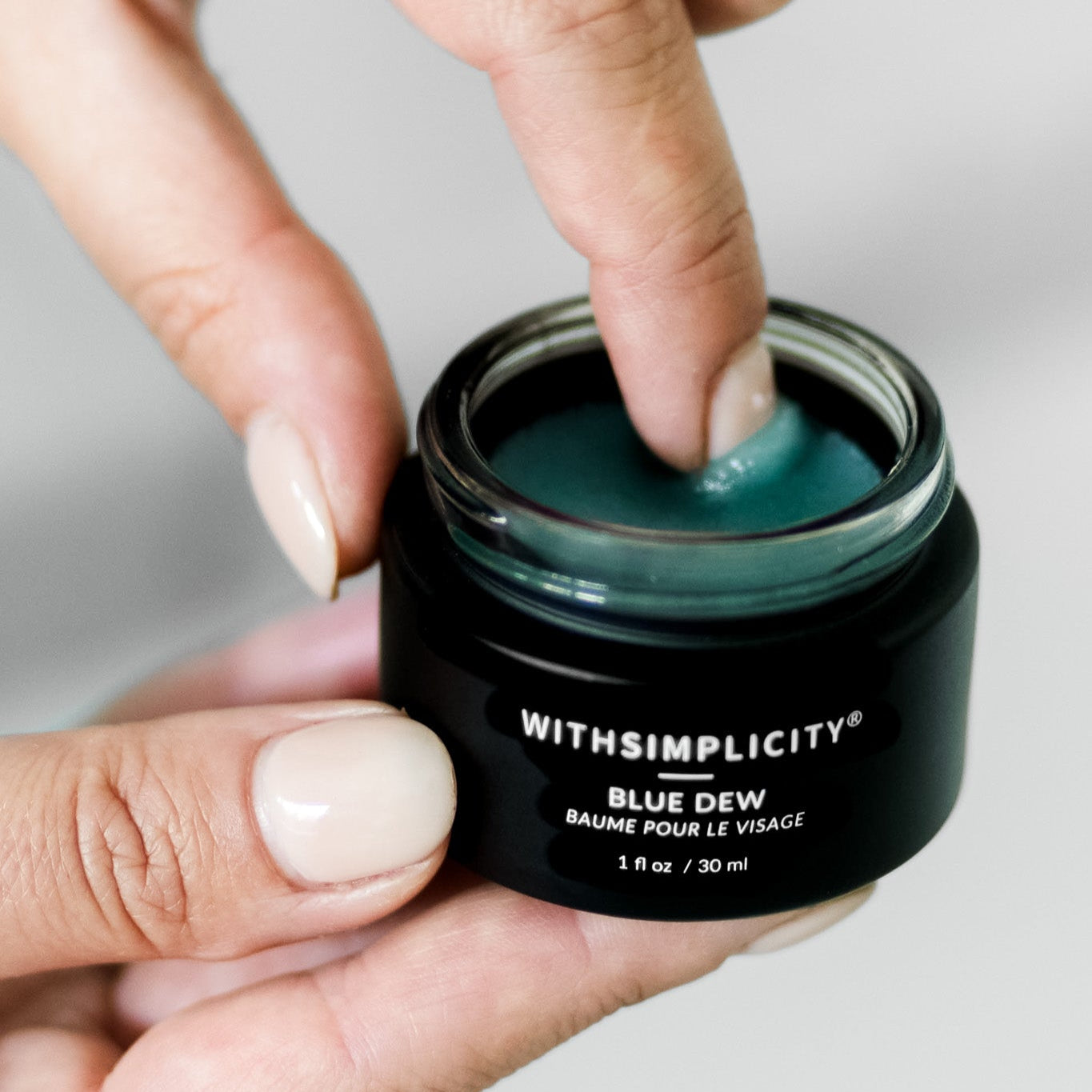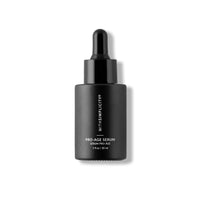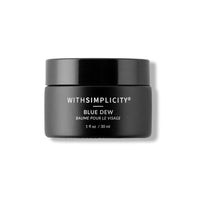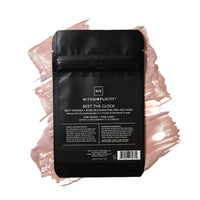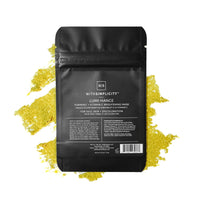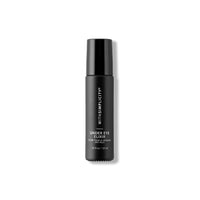n today's world, taking care of your skin has become more important than ever. Pollution, stress, and poor eating habits are just some of the factors that can damage your skin and make it look dull and lifeless. Fortunately, there are many natural sources of vitamins that can help nourish and rejuvenate your skin.
Let’s explore the skincare benefits of Vitamins A, B5, C, D, and E and the vital roles they play in keeping your skin healthy.
What is Vitamin A?
Vitamin A is a fat-soluble vitamin that plays a crucial role in maintaining healthy skin. It promotes skin cell turnover, helps reduce the appearance of fine lines and wrinkles, and prevents breakouts by regulating sebum production and unclogging pores. Vitamin A is also a potent antioxidant that can help protect the skin from environmental damage.
Ingredients to Look For:
When choosing a natural and organic vitamin A product, look for ingredients such as rosehip oil, apricot kernel seed oil, camellia oleifera seed oil, cranberry seed oil, and sunflower oil.
Ingredients to Look For:
Rosehip Oil, Apricot Kernel Seed Oil, Camellia Oleifera Seed Oil,
Cranberry Seed Oil, Sunflower Oil,
Carrot Seed Oil
What are the Skin Benefits of Vitamin A?
- Promotes skin cell turnover and regeneration, helping to improve skin texture and tone.
- Helps to reduce the appearance of fine lines and wrinkles, making the skin look smoother and more youthful.
- Regulates sebum production, which can help prevent breakouts and acne.
- Helps to minimize the appearance of dark spots and hyperpigmentation, improving overall skin tone and reducing discoloration.
- Has antioxidant properties, which can help protect the skin from environmental damage and free radicals.
- Helps to strengthen the skin barrier, preventing moisture loss and keeping the skin hydrated.
- Can improve the appearance of sun-damaged skin by increasing collagen production and reducing the appearance of sunspots and wrinkles.
- May also have anti-inflammatory properties, which can help reduce redness and inflammation in the skin.
Products that Contain Vitamin A:
- Pro-Age Serum
- Blue Dew
Pro-vitamin B5, also known as Panthenol, is a water-soluble vitamin that is part of the B-complex family. When applied topically to the skin, it is converted into pantothenic acid, which plays a crucial role in maintaining skin health.
Ingredients to Look For:
Pro-Vitamin B5, Panthotehnic Acid, Panthenol
What are the Skin Benefits of Pro-Vitamin B5?
- Hydrates the skin: Pro-vitamin B5 has the ability to attract and retain moisture in the skin, making it an excellent hydrating ingredient for dry or dehydrated skin.
- Improves skin texture: Pro-vitamin B5 promotes skin regeneration and repair by stimulating the production of fibroblasts, which are essential for collagen and elastin production. This can improve the overall texture and appearance of the skin.
- Reduces inflammation: Pro-vitamin B5 has anti-inflammatory properties, making it effective in reducing redness, irritation, and itching caused by inflammatory skin conditions such as acne, eczema, or rosacea.
- Helps heal wounds: Pro-vitamin B5 has wound-healing properties and can help promote skin regeneration and repair. It stimulates cell proliferation and can aid in the healing of cuts, abrasions, and other minor skin injuries.
- Improves skin barrier function: Pro-vitamin B5 helps to strengthen the skin barrier, preventing moisture loss and protecting the skin from environmental stressors.
- Soothes sensitive skin: Due to its anti-inflammatory properties, pro-vitamin B5 can help calm and soothe sensitive or irritated skin.
- Reduces the appearance of fine lines and wrinkles: Pro-vitamin B5 can help to plump and firm the skin, reducing the appearance of fine lines and wrinkles.
- Suitable for all skin types: Pro-vitamin B5 is gentle and non-irritating, making it suitable for all skin types, including sensitive skin.
Products that Contain Pro-Vitamin B5:
What is Vitamin C?
At this point, you probably know all about Vitamin C, one of skincare's holy grail ingredients!
Vitamin C is a powerful antioxidant that protects the skin from free radical damage. Free radicals are unstable molecules that can damage skin cells and accelerate the aging process. When we hear about Vitamin C in Skincare, we mainly think of glowing, bright skin, but Vitamin C does more than just give you the healthy glow we all crave.
Ingredients to Look For:
Citrus Oils (Orange, Bergmot, Lemon), Citric Acid, Algae,
Papaya, Berries, Pomegranate
What are the Skin Benefits of Vitamin C?
- Promotes collagen synthesis, which helps to improve skin elasticity and reduce the appearance of fine lines and wrinkles.
- Brightens the complexion by reducing the appearance of dark spots and hyperpigmentation.
- Has antioxidant properties, which can help protect the skin from environmental damage and free radicals.
- Reduces inflammation and redness in the skin, making it an excellent ingredient for those with sensitive or reactive skin.
- Can improve the appearance of sun-damaged skin by reducing the appearance of sunspots and wrinkles.
- Boosts the effectiveness of sunscreen by reducing UV-induced damage.
- May help to reduce the appearance of acne scars and blemishes.
When looking for natural skincare sources of Vitamin C, look for ingredients such as any citrus oil such as orange, lemon, or even bergamot. Just know that citrus oils should be used properly if you’ll be out in the sunlight.
Photosensitivity is a condition in which the skin becomes more sensitive to light and more prone to sunburn and other types of skin damage. Certain compounds found in citrus oils, such as limonene and bergapten, can increase photosensitivity when applied to the skin. This means that if you use citrus oils on your face and then expose your skin to sunlight or UV rays, you may be more likely to experience sunburn, skin discoloration, or other types of skin damage.
The extent of photosensitivity varies depending on factors such as the concentration of the citrus oil in the product, the amount applied to the skin, and the individual's skin type and sensitivity. However, it is generally recommended to avoid using citrus oils on the face if you will be spending time in direct sunlight or if you have sensitive skin.
If you do want to use citrus oils on your face, there are a few precautions you can take to minimize the risk of photosensitivity:
- Dilute the citrus oil with a carrier oil, such as jojoba oil or sweet almond oil, before applying it to the skin. (All withSimplicity skin care products with citrus oils are properly diluted!)
- Use the citrus oil at night, when you will not be exposed to sunlight or UV rays.
- Use a broad-spectrum sunscreen with an SPF of 30 or higher to protect your skin from sun damage. This is especially important if you will be using citrus oils during the day.
Products that Contain Vitamin C:
What is Vitamin D?
Vitamin D is an essential nutrient that plays a vital role in maintaining healthy skin. It helps to regulate the growth and differentiation of skin cells, which can help to prevent skin disorders such as psoriasis and eczema. Additionally, vitamin D can help to protect the skin from UV damage.
It's worth noting that while Vitamin D is important for overall health, it is not commonly used as a topical ingredient in skincare products. Instead, most people get their Vitamin D through sun exposure or supplements. However, maintaining adequate levels of Vitamin D can still have positive effects on the skin.
What are the Skin Benefits of Vitamin D?
- Helps to regulate the immune system, which can help reduce inflammation and prevent skin conditions such as eczema and psoriasis.
- Helps to promote cell growth and repair, which can improve overall skin health and appearance.
- Has antioxidant properties, which can help protect the skin from environmental damage and free radicals.
- Helps to maintain the skin barrier, preventing moisture loss and keeping the skin hydrated.
- Can improve the appearance of acne-prone skin by reducing inflammation and regulating sebum production.
- Helps to improve skin elasticity and firmness by stimulating collagen production.
- Can improve the appearance of sun-damaged skin by reducing the appearance of fine lines and wrinkles.
- May also have antimicrobial properties, which can help prevent the growth of harmful bacteria on the skin.
It's also important to get enough vitamin D through sun exposure and a balanced diet. Spending 10-15 minutes in the sun each day can help your body produce vitamin D. Foods such as salmon, mushrooms, and fortified cereals can also provide vitamin D.
What is Vitamin E?
Vitamin E is a powerful antioxidant that helps to protect your skin from environmental stressors, such as pollution and UV radiation. It also has anti-inflammatory properties that can soothe and calm irritated skin. Vitamin E can also help to improve skin texture and reduce the appearance of fine lines and wrinkles.
Ingredients to Look For:
Tocopherol, Tocopheryl Acetate, Sunflower Oil, Safflower Oil, Sweet Almond Oil
Pro Tip:
Vitamins C & E work well together! Make sure both are in your skincare routine.
What are the Skin Benefits of Vitamin E?
- Moisturizes the skin: Vitamin E is an effective moisturizer that helps to keep the skin soft, supple, and hydrated.
- Protects against free radicals: Vitamin E is a powerful antioxidant that can help protect the skin from damage caused by free radicals, which can contribute to premature aging.
- Reduces inflammation: Vitamin E has anti-inflammatory properties, which can help reduce redness, swelling, and irritation on the skin.
- Helps heal scars: Vitamin E can help to promote the healing of scars by increasing circulation to the area and stimulating collagen production.
- Improves skin texture: Vitamin E can improve the texture and tone of the skin, making it smoother and more even in appearance.
- Prevents UV damage: Vitamin E can help protect the skin against damage caused by UV radiation, which can contribute to premature aging and skin cancer.
- Enhances skin elasticity: Vitamin E can help to improve the elasticity and firmness of the skin, making it appear more youthful and radiant.
- Reduces the appearance of fine lines and wrinkles: Vitamin E can help to reduce the appearance of fine lines and wrinkles by plumping and firming the skin.
- Suitable for all skin types: Vitamin E is gentle and non-irritating, making it suitable for all skin types, including sensitive skin.
Products that Contain Vitamin E:
Incorporating vitamins A, C, B5, D, and E into your skincare routine can provide a multitude of benefits for your skin. When choosing vitamin-packed skincare products, be sure to read the labels carefully and look for high-quality ingredients. Start slowly and patch test new products to avoid irritation. With a little bit of patience and dedication, you can achieve healthy, radiant skin with the help of these essential vitamins.

